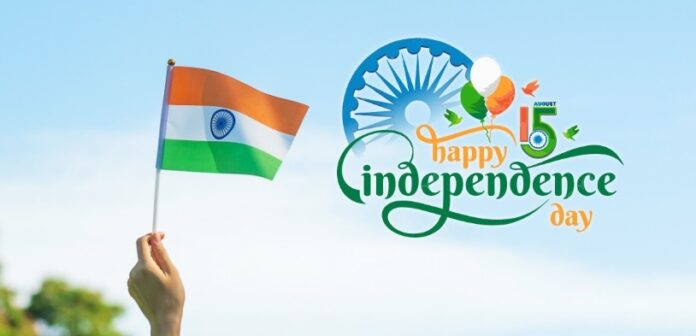On August 15, 1947, India witnessed the dawn of freedom after centuries of colonial rule. The moment marked the end of an era of oppression and the beginning of a sovereign future. Millions celebrated across towns and cities, turning the night into an unending festival of joy.
Article Contents
In 2025, India celebrates its 79th Independence Day, remembering the countless sacrifices made for liberty. But August 15 holds importance not just for India; it is a historic date for several nations and global events. Over the past two centuries, this day has witnessed significant political shifts, declarations of freedom, and cultural milestones.
Japan’s Surrender and Korea’s Liberation in 1945
On August 15, 1945, World War II took a decisive turn. The United States had dropped two powerful atomic bombs on Japan, forcing the nation to reconsider its stance in the conflict. Just days later, Emperor Hirohito addressed the Japanese people via radio, announcing unconditional surrender.
In Japan, this date is remembered as “Susen no Hi,” meaning the Day of the End of the War. The announcement marked not only the end of Japan’s involvement in the war but also the liberation of Korea.
For over four decades, Korea had been under Japanese colonial rule. The surrender of Japan brought long-awaited independence to the Korean Peninsula. However, unity was short-lived, and the region was eventually divided into North and South Korea. Today, South Korea observes this day as “Gwangbokjeol,” or the Day of Restoration of Independence, with national pride and commemorations.
Congo’s Independence from France in 1960
Another significant chapter in global history unfolded on August 15, 1960. The African nation of Congo gained independence from France after years of political struggle and resistance. The end of French colonial control brought sovereignty to the Congolese people, with Fulbert Youlou becoming the country’s first president.
Congo’s liberation was part of a broader wave of African decolonization during the mid-20th century, as many nations sought self-governance and the right to determine their own future.
Bahrain’s Declaration of Independence in 1971
Bahrain’s modern political identity took shape on August 15, 1971, when it declared independence from British control. This came after formal agreements with Britain, ending decades of foreign political influence.
However, Bahrain officially celebrates its National Day on December 16 each year. The date marks the coronation of Amir Isa bin Salman Al Khalifa, who assumed leadership on that day in 1961.
Liechtenstein’s National Day Since 1855
In Europe, the small principality of Liechtenstein also shares August 15 as a symbolic date. Following the dissolution of the German Confederation in 1855, Liechtenstein emerged with greater autonomy. Since then, the country has celebrated its National Day on August 15.
Despite its small size, Liechtenstein’s observance of this date highlights the shared global significance of mid-August as a time of national identity and celebration.
The Opening of the Panama Canal in 1914
Beyond declarations of independence, August 15 also marks milestones in infrastructure and trade. On this day in 1914, the Panama Canal was officially opened, connecting the Atlantic and Pacific Oceans.
The canal dramatically boosted global trade and strengthened the economic influence of the United States, which had invested heavily in its construction. Over time, the canal became a crucial maritime route for international commerce.
Religious and Cultural Significance
August 15 holds deep meaning in the Roman Catholic tradition. Many believers observe it as the Feast of the Assumption, commemorating the belief that the Virgin Mary was taken to heaven.
This religious observance is recognized as a public holiday in numerous countries across Europe and Latin America. Churches hold special services, and communities gather for celebrations rooted in centuries-old tradition.
A Date Connecting Nations and Histories
From Asia to Africa, from Europe to the Americas, August 15 stands as a day that unites diverse histories. For India, it symbolizes the triumph of freedom over colonial rule. For Japan and Korea, it marks the close of a brutal war and the rebirth of sovereignty. For Congo and Bahrain, it represents political emancipation from European powers. For Liechtenstein, it reinforces national identity, and for the world’s maritime trade, it recalls the opening of a route that reshaped commerce.
As India celebrates its 79th year of independence in 2025, it also shares this moment with countries and cultures that find meaning in this date. The stories linked to August 15 reveal how a single day can carry multiple narratives—each rooted in struggle, resilience, and the desire for self-determination.
Remembering the Sacrifices and Looking Ahead
Independence is never achieved without sacrifice. India’s freedom was the result of decades of protests, movements, and countless acts of courage. Leaders, revolutionaries, and ordinary citizens endured hardship to secure a future of self-governance.
Likewise, other nations that commemorate August 15 share similar legacies of struggle and perseverance. This day serves as a reminder that liberty must be protected and nurtured, not just celebrated.
In 2025, as the Indian tricolour waves across the nation, it also waves in solidarity with the spirit of independence worldwide. The date will continue to be a bridge between different cultures and histories, carrying forward the lessons of the past into the aspirations of the future.




